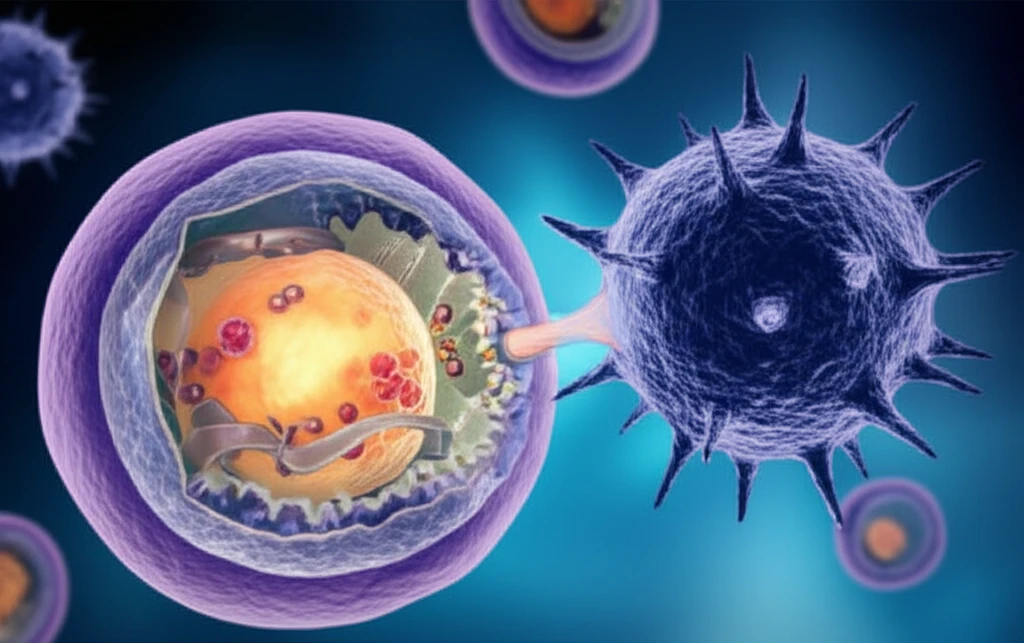
Fat's Hidden Role: How Obesity Impacts Your Immune System's Cancer-Fighting Abilities
"New research reveals how excess fat can sabotage the vital work of natural killer cells, hindering their ability to destroy tumor cells and potentially opening doors for new cancer immunotherapies."
Obesity is a significant risk factor for several diseases, including cancer. Recent studies suggest that obesity can disrupt the immune system, weakening the body's ability to fight off tumors. While the immune system usually protects against the establishment and spread of cancer, the specific ways obesity interferes with this protection have been unclear.
Now, researchers led by Lydia Lynch have uncovered a critical mechanism: in obese individuals, lipids (fats) can accumulate within natural killer (NK) cells. These NK cells are a type of immune cell crucial for destroying infected or cancerous cells. The accumulation of fat impairs their ability to move to the site of contact with tumor cells, crippling their ability to kill them.
This article will delve into the details of this groundbreaking research, explaining how excess fat clogs up the machinery within NK cells, preventing them from functioning correctly. We'll explore the implications of these findings for cancer prevention and treatment, offering insights into potential new therapies that could restore immune function in obese individuals.
How Fat Blocks Natural Killer Cells: The Cytotoxic Machinery Breakdown

The researchers discovered that in obese individuals, NK cells undergo metabolic changes that interfere with their cancer-fighting abilities. Specifically, the NK cells from obese mice and humans showed increased lipid handling and metabolism. This excess fat accumulation directly correlated with a decrease in their cytotoxicity – their ability to kill target cells.
- Fat Accumulation: Lipids build up inside NK cells.
- Movement Blocked: Lytic granules can't reach tumor cells.
- Killing Impaired: NK cells fail to destroy cancer cells effectively.
Future Implications: Reclaiming Your Immune System's Cancer-Fighting Power
This research marks a significant step forward in understanding how obesity impacts immune function and cancer risk. The findings suggest that metabolic reprogramming of NK cells plays a crucial role in the reduced ability to fight tumors in obese individuals. As Lydia Lynch states, "We show for the first time that metabolic reprogramming of NK cells in obesity leads to NK cell defects and reduced tumor killing."
The study opens exciting possibilities for future cancer immunotherapies. By targeting lipid metabolism in NK cells, researchers hope to develop strategies to restore their cytotoxic function and enhance the body's natural defenses against cancer. This could involve blocking lipid uptake or altering lipid metabolism within these immune cells.
Ultimately, these findings highlight the importance of maintaining a healthy weight and lifestyle for optimal immune function. While further research is needed, this study provides a compelling link between obesity, immune dysfunction, and cancer, paving the way for new approaches to cancer prevention and treatment.
